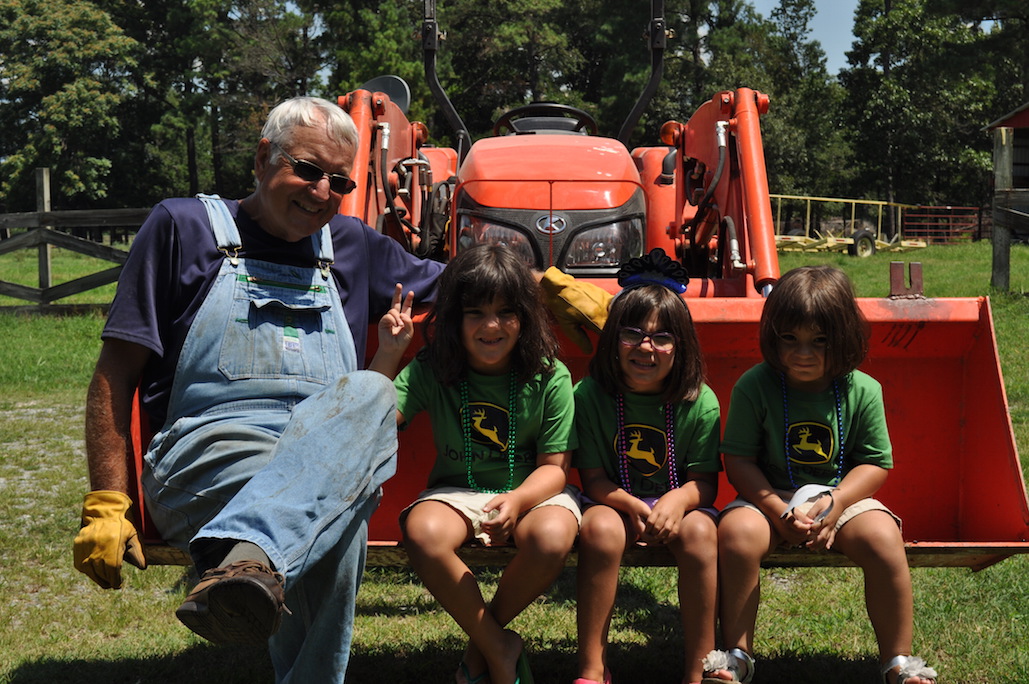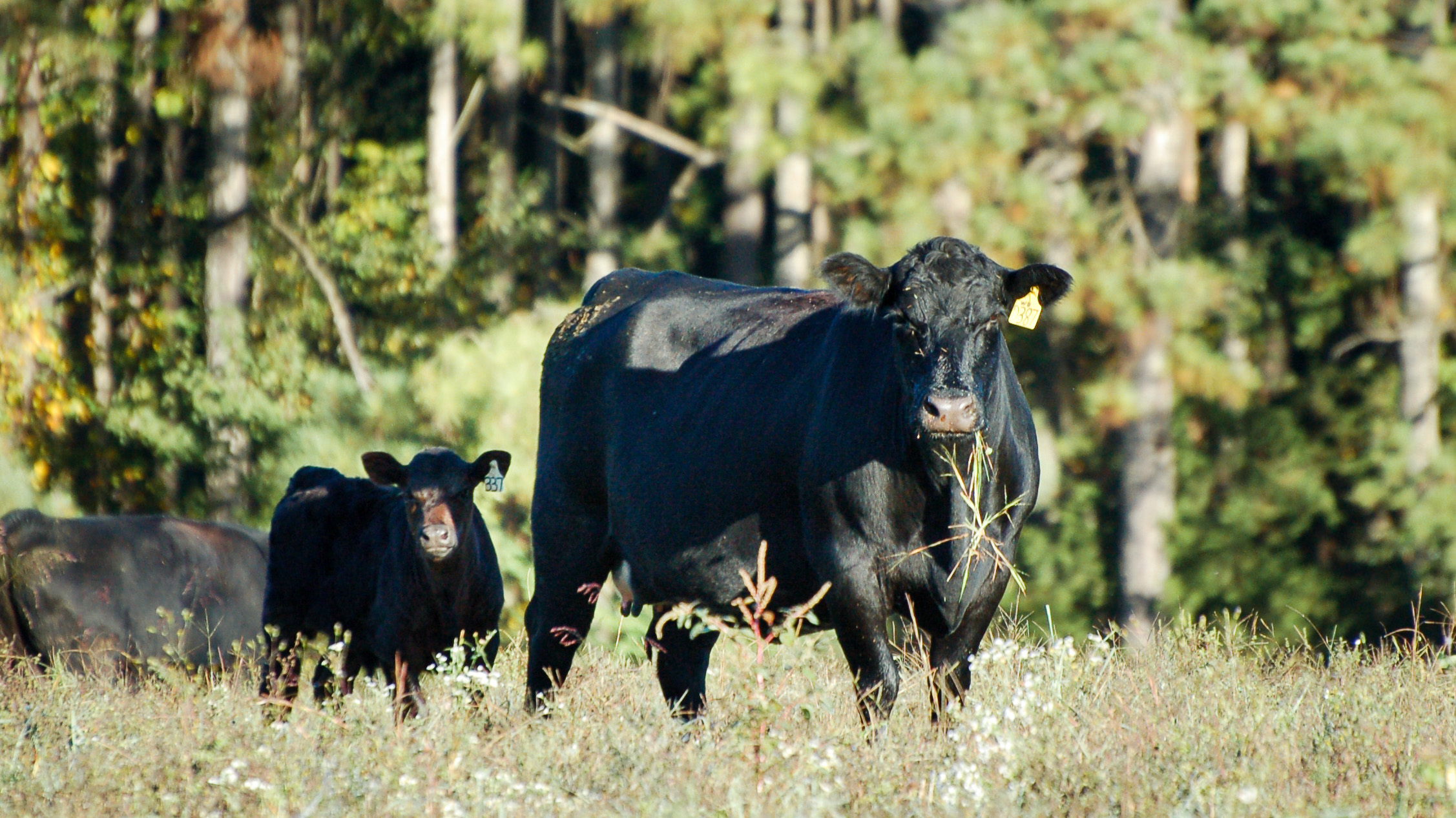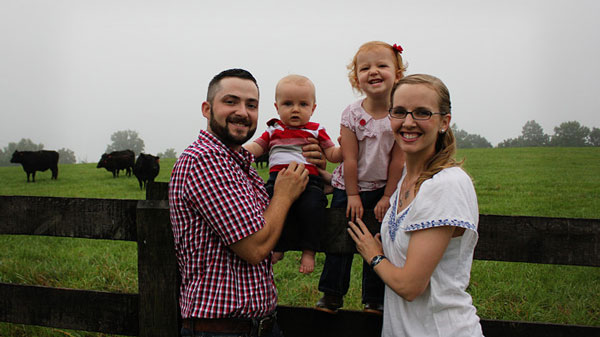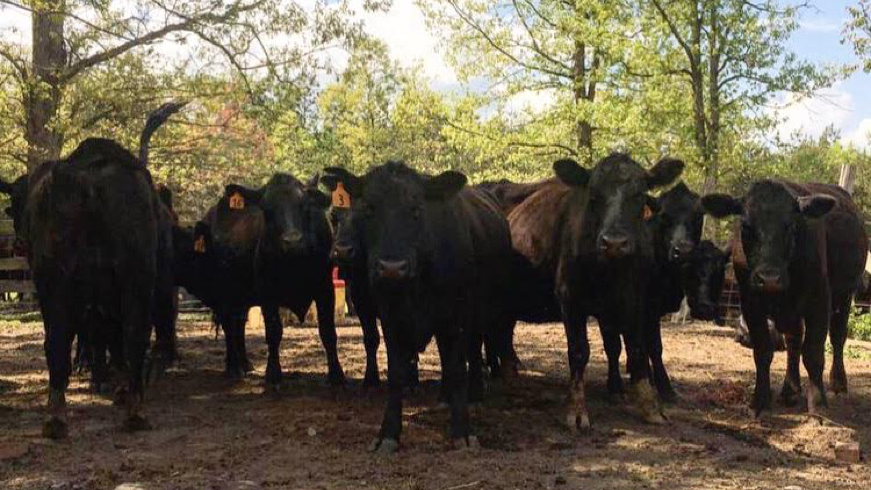The Gustin Family - Gustin Land & Cattle
Jerry Gustin gained early exposure to the beef business while growing up in Kansas, but didn't start his own operation until after he retired from the military. His enthusiasm for the beef community is palpable, and he serves with many industry organizations including the Angus Association and the Virginia Beef Council Board.
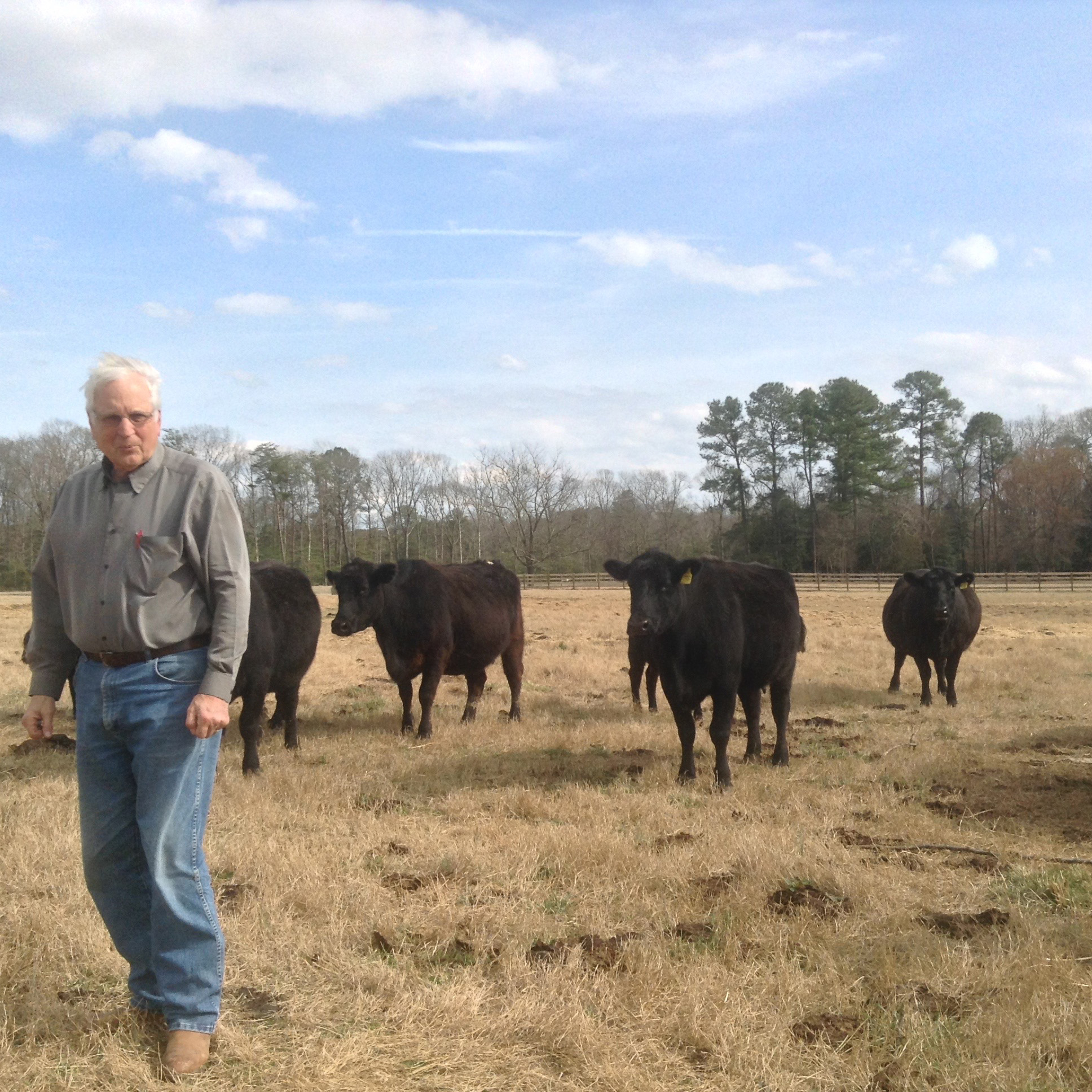
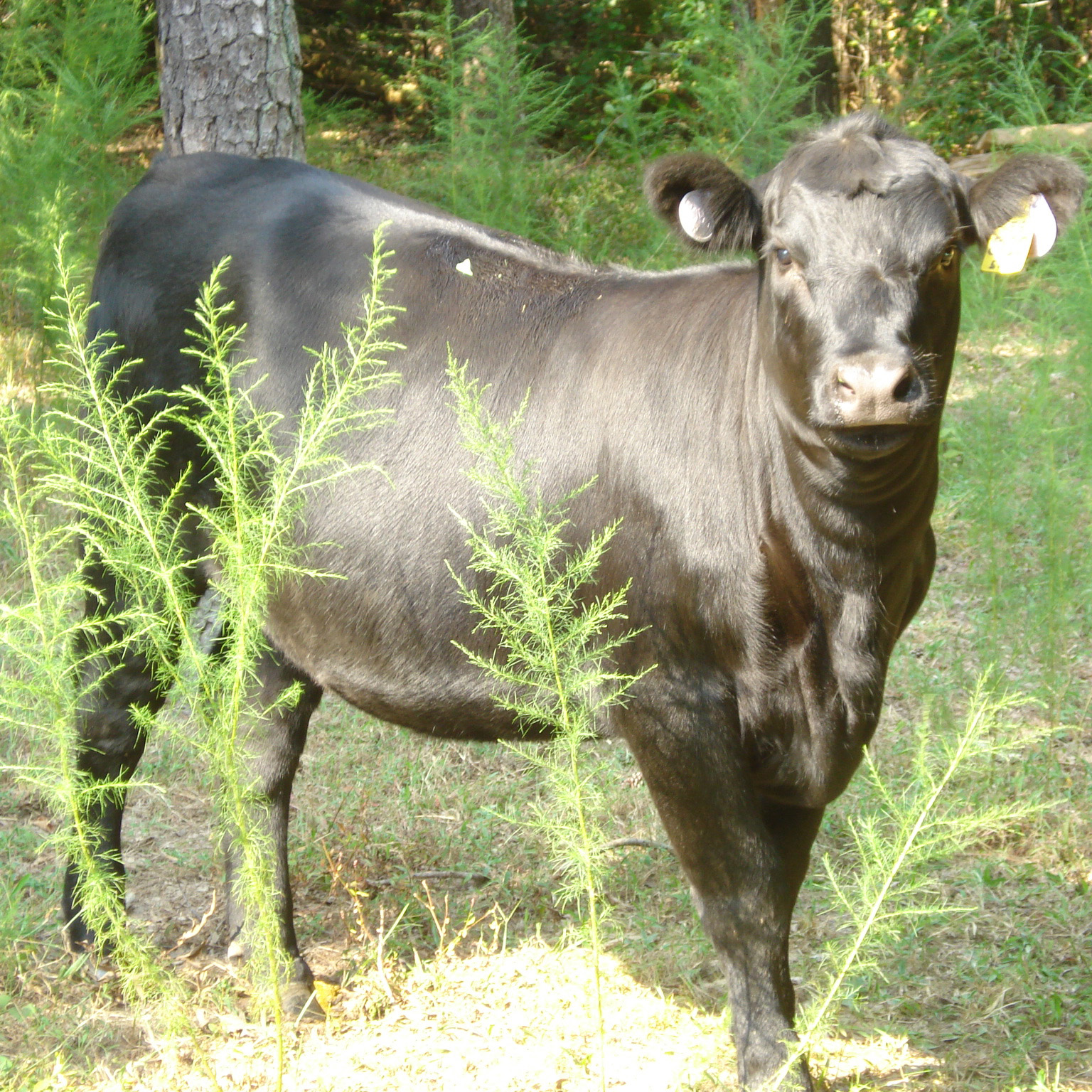
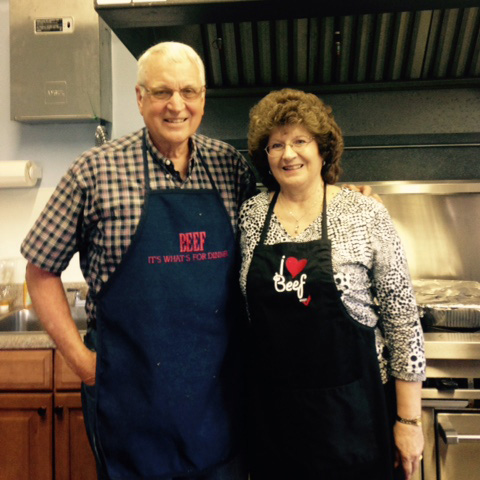
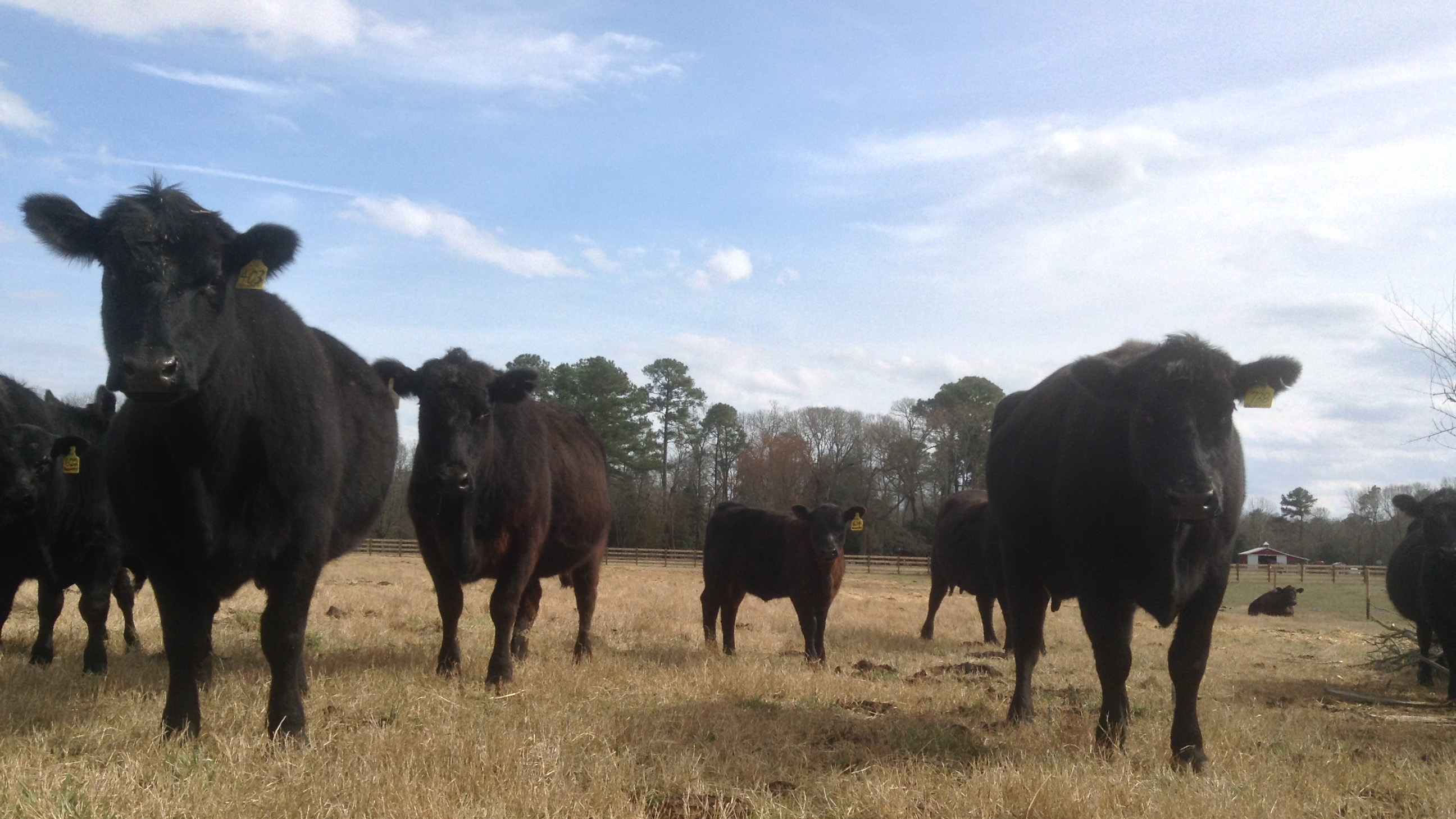
VBC: Tell us about your beef cattle operation.
Jerry: We are a small registered Angus cow-calf family farm operation. We keep up to 20 mama cows. We started the farm in 1988 and have been in business ever since. Our goal is to raise cattle that satisfy consumer demand in a sustainable, profitable manner.
We are located in Gloucester, Virginia where not many herds of cattle are raised. This area of Virginia has a primary focus on grain crops and vegetables so we are proud to raise beef in this community. Our operation is family-owned and operated raising a herd of registered Angus cattle. Within my operation, artificial insemination is used as well as embryo transfer.
"I am always excited each year when calving time comes around, because that is the new generation of keeping this herd for the future" - Jerry
My wife Karen and I run the farm. We exchange some labor with a neighboring dairy. Specifically, I do their Artificial Insemination and they (Benjamin and Philip) help us with tasks that take more than one person to do, and take care of our chores when I have to be out of town. Karen does the record keeping and finances. I care for the cattle and day-to-day operations, breeding, putting up hay, and fixing fences.
I think it is unique that we are so small in numbers within our herd. This allows me to have fewer cattle to manage and better allows for more individual attention for each of our cattle. Being able to have more individual attention has helped over the years with our heard health program as well as breeding.
VBC: Tell us why you are in the beef business.
Jerry: Beef Production is what I do because I enjoy working with the cattle every day. Beef is a very important protein, and personally, I enjoy producing a product that is high-quality. Producing a food that people enjoy the taste of and want to feed to their families is important to me.
VBC: How do you play a role in producing a high-quality protein?
Jerry: Quality is important to me: Not only am I raising beef for consumers, but also for myself to eat. We make sure that everything that we do on our farm would be accepted by the Beef Quality Assurance program. We do things by the numbers and by the books like it should be done.
The type of cattle we breed and the sires we use are taken into consideration to ensure that we have prime carcass characteristics and marbling in our beef cuts. Herd health is an important aspect of Gustin cattle to ensure that we are using the right antibiotics in correct quantities and the right times. Overmedication is something that we never want to do. We do, however, want to ensure when they do need antibiotics or other care that we get that to them so they can do their job of producing quality beef. Lastly, to produce high quality beef, the feed the animals are eating needs to be carefully considered. We spend a lot of time focusing in on the forages grain and mineral to ensure the correct balance is used.
VBC: What is your favorite thing about raising beef?
Jerry: I enjoy making the mating decisions and then seeing the little calves being born. We breed our cows so they have calves in September and October. That is my favorite part of the operation. Calves get up and nurse within 45 minutes of birth and learn very quickly. They can run and jump within 48 hours. I think they are amazing little creatures!
[One of the greatest things about being in the business is] the people I have met. Having a common interest with all beef producers. Its not just about looking at what I do one my operation, but instead connecting with others to see what impact we are making as a whole beef industry. Seeing the professionalism and drive that the agriculture industry has makes me proud to be part of it.
VBC: How do you use technology on your farm?
Jerry: We very much so support the land-grant universities and extension as a resource to help us produce quality beef. The information gotten from them and resources on the internet allow me to be more successful with breeding and in vernal raising my cattle. Artificial Insemination (AI) is a big part of our operation, and I view this as a technology. This is especially important when it comes to sire selection and cost, because we could never afford to buy some of the progeny that we would want to use without A.I.
VBC: What is your favorite way to enjoy beef?
Jerry: I really enjoy hamburgers for one, but I also enjoy a good steak! The Ribeye is my favorite steak. I enjoy the marbling quality and the taste. When preparing a ribeye, I like to keep it simple so it doesn't take away from the taste of the beef. Normally, we eat of steak with a spoonful or so of bourbon and rub that in with salt and cracked pepper.
VBC: What is one thing you wish the public knew about farming or about your operation in particular?
Jerry: I would like everyone to know that cattlemen are genuinely committed to providing safe, affordable, and nutritious beef products for their own families and for yours. In 2010, I had the opportunity to be the president of the Virginia Angus Association. In that capacity, I traveled and attended Angus events in every corner of Virginia and some surrounding states. Without hesitation or reservation, I can tell you that the people I met are sincere about the land and cattle they care for, and the food they produce for you and your family.
VBC: If you could describe the life of a beef producer in one word, what would it be and why?
Jerry: Work. Like anything in life, if you want to be successful you will have to put in work. As a beef producer, the cattle require work every day, no matter the weather conditions. But when you see where the work you are putting in takes you, it is very fulfilling.
